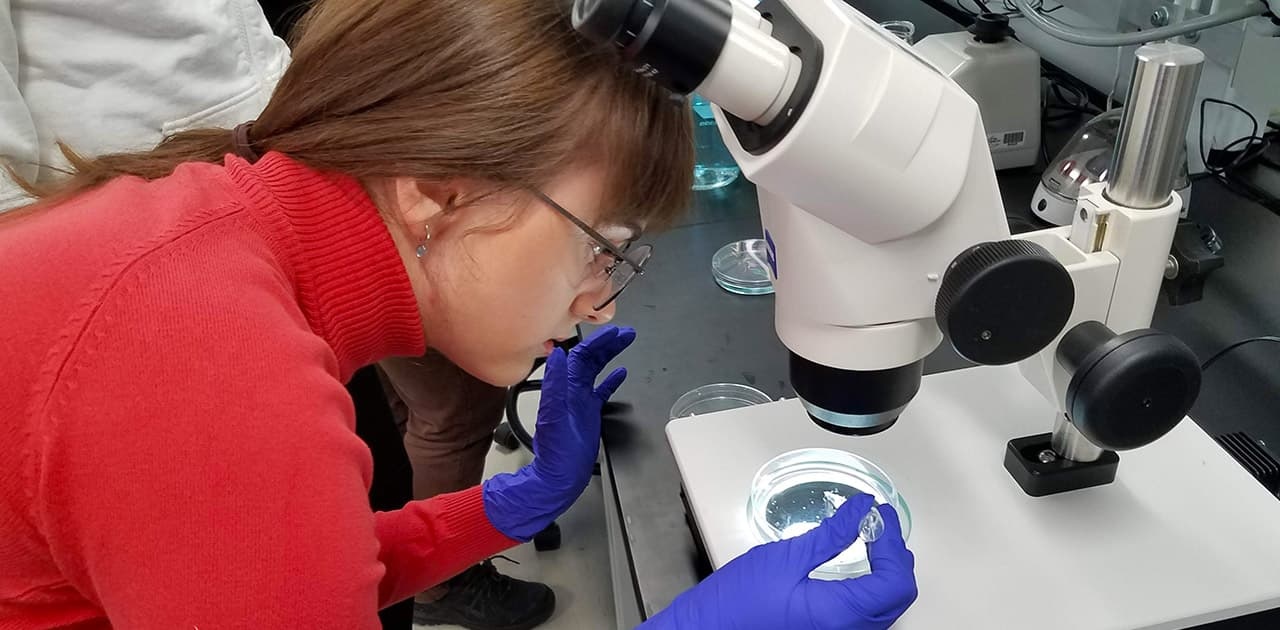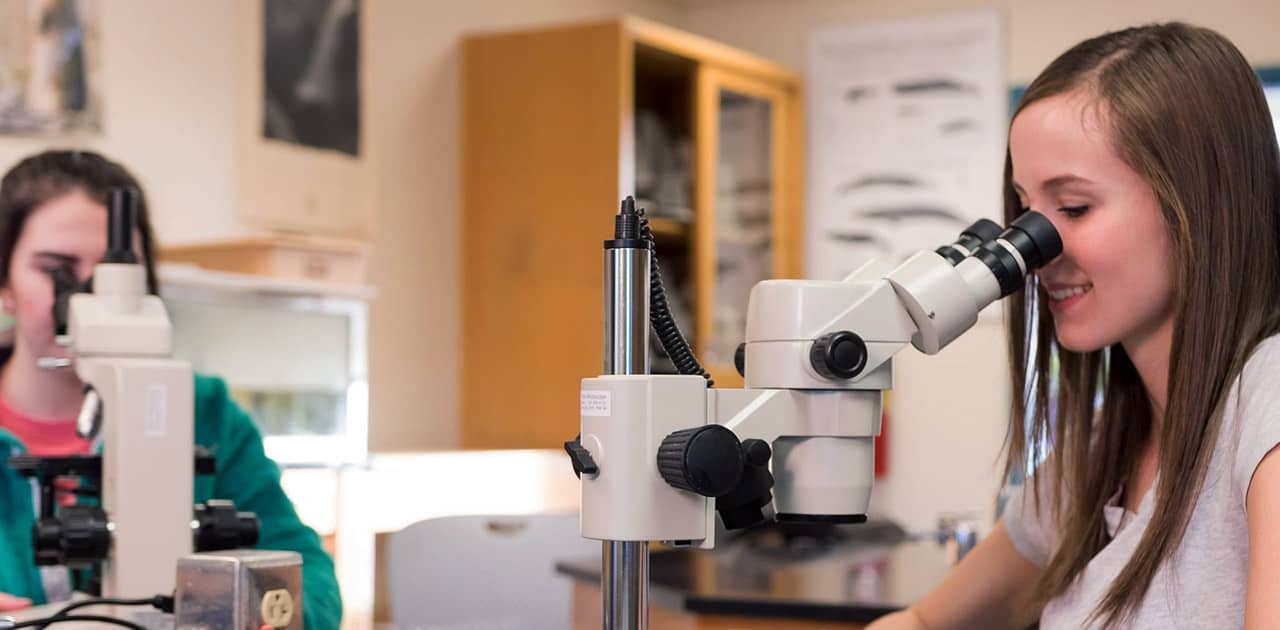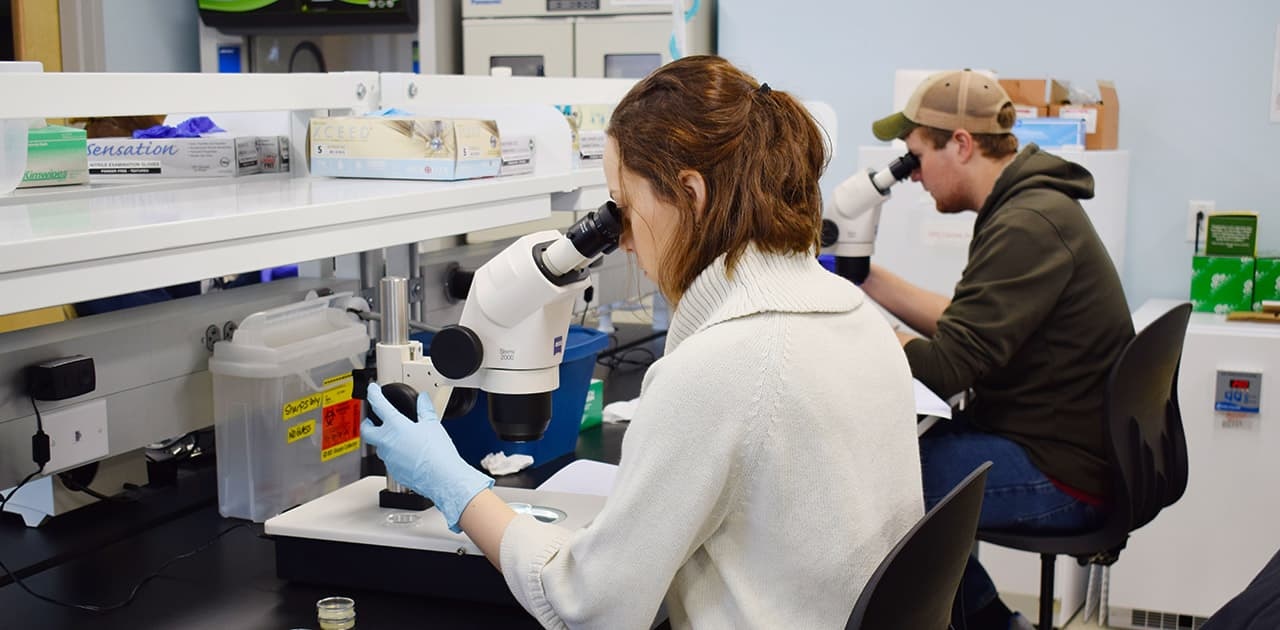
Dr. Stephen Hansen

Assistant Professor of Biology & Environmental Studies
Dr. Stephen Hansen has been teaching biology and environmental studies at UMFK for 18 years.
Dr. Hansen earned his bachelor's in forestry from the University of Toronto, his master's in biology from Laurentian University in Ontario, and his Ph.D. in Zoology from the University of Guelph in Ontario.
He worked as a Wildlife Research Biologist from 1979 to1986 at the Institute of Arctic Ecophysiology, located in Churchill Manitoba, Canada. While there, he conducted aerial surveys of white whale abundance and distribution and in the Churchill River estuary, with simultaneous water surveys in the estuary and adjoining Hudson Bay coastal waters. He also conducted energetic studies on polar bear and Arctic fox. He participated in various studies on winter behavior of caribou in the Churchill Wildlife Management Area.
In 2020, Dr. Hansen launched a new investigation on wood turtle road mortality in northern Maine. Due to a significant decline in wood turtle populations, citing road mortality as the major threat to the species, the U.S. Fish and Wildlife Service is considering listing wood turtles under the Endangered Species Act. This study will combine analyses of existing research with an analysis of roadkill surveys both before and after fence installation as a possible way to mitigate wood turtle mortality.
The study is done in collaboration with the Maine Department of Transport (DOT) and the Maine Department of Inland Fisheries and Wildlife (MDIFW). This multi-year study will focus on the impact that transportation corridors have on wood turtle populations and formulate recommendations for possible fence treatments on Maine roadways. Importantly, this study will benefit students through participation in the research process and will provide them with an understanding of and appreciation for community-based applied research. Under the direction of both the DOT and MDIFW, students will be involved in all aspects of the research and learn important field skills.
Dr. Hansen also collaborates on studying vector-borne diseases with the Maine Medical Research Institute which provides a summer internship to a student to survey mosquito species in northern Maine. He also collaborates with the MDIFW and Maine Medical Research Institute to survey winter ticks on moose in northern Maine. In addition, Dr. Hansen and students collect blood from the moose for the Maine Medical Research Institute. The tick surveys and blood collection are components of his wildlife classes every fall. Students really enjoy this field experience and many students have utilized the data or experience as either a senior project or as a practicum, respectively.
In his spare time, Dr. Hansen enjoys hiking, canoeing, snowshoeing, and photography. He is also an active member of the Fort Kent Rotary Club and participates in various community projects.





